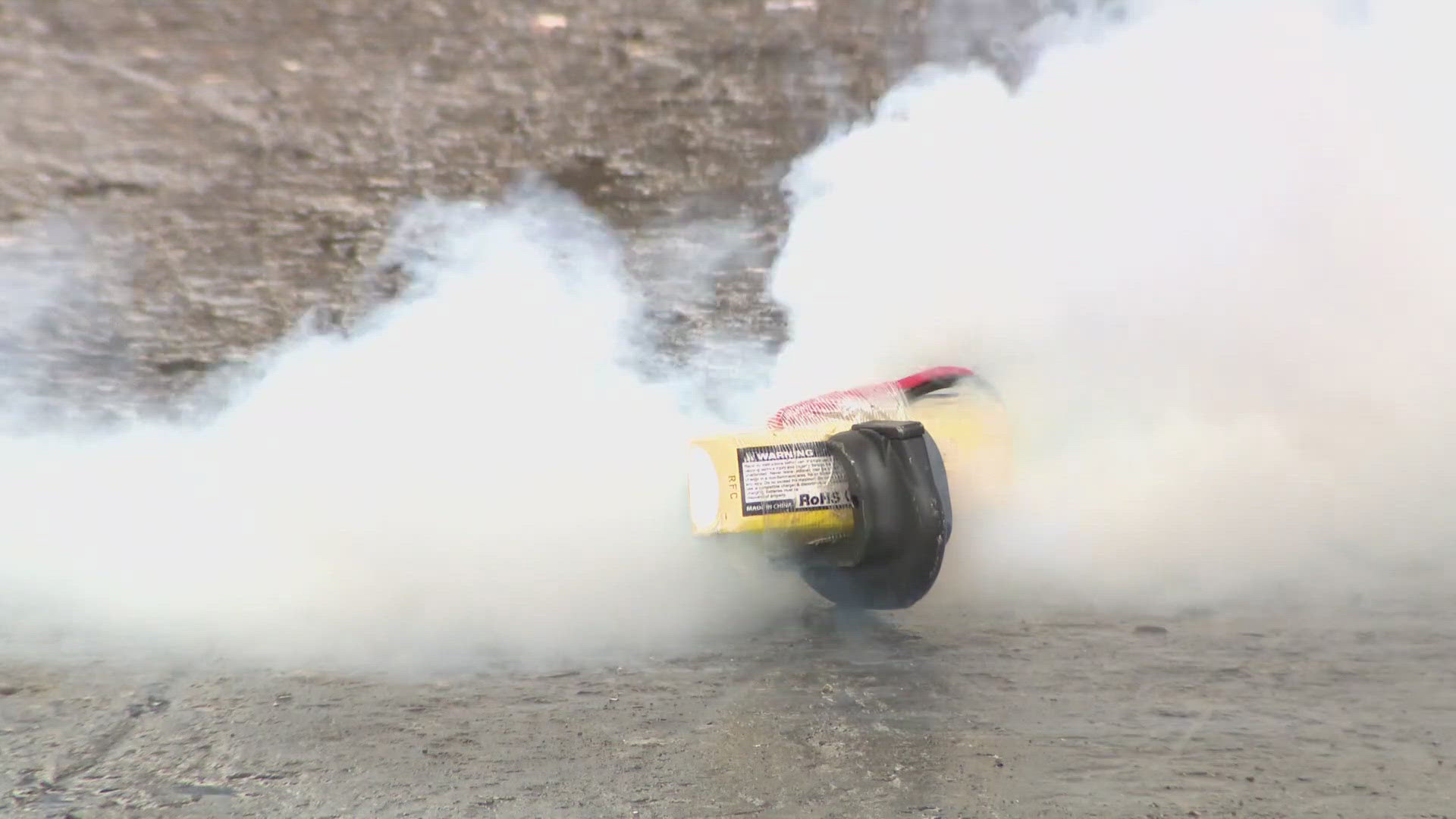DERWOOD, Md. — In honor of America Recycles Day, Montgomery County officials are raising awareness about a growing environmental and safety hazard: the improper disposal of batteries.
On Friday at the Shady Grove Waste Transfer Station in Derwood, local fire officials demonstrated the dangerous consequences of mishandling batteries, especially lithium-ion varieties, which are commonly found in household electronics and toys.
The demonstration was stark. Montgomery County firefighters intentionally damaged a lithium-ion battery from a children’s toy, causing it to catch fire and release intense heat and toxic smoke.
"We can't stress enough the importance of properly recycling batteries," said Battalion Chief Ivan Browning, who oversees fire safety in the county.
Jeff Camera, who manages the Shady Grove Transfer Station, explained that battery-related fires are a serious and growing concern.
"Most people don’t think about it, but what they don’t realize is when they throw them away, these things are probably 50% of the cause of the fires we have here," he said.
Browning said that batteries can ignite when they are overcharged, misused with incompatible chargers, or damaged—often after being improperly discarded. Throwing batteries in the trash or mixing them with other recyclables can lead to dangerous fires at waste management facilities, he said.
That’s why Montgomery County’s Department of Environmental Protection is urging residents to take action.
"The most important thing when it comes to battery safety is don't throw them in the trash, and don't throw them in your regular recycling," said Jon Monger, director of the county's Department of Environmental Protection.
"Instead of throwing them away, bring them to a designated recycling location," Monger emphasized.
The Shady Grove facility is one such location, and residents can also find numerous drop-off points at local grocery stores, hardware stores, and office supply retailers. Monger recommended visiting Call2Recycle.org and entering your ZIP code to easily find nearby battery recycling centers.
Monger added that, while different types of batteries—alkaline, lead-acid, and lithium-ion—might seem complicated to sort, it’s easy.
"Just bring them here, and we do that for you," he said. "The key is to not throw them away. There’s valuable material inside these batteries that can be stripped out and recycled."
By properly recycling batteries, Montgomery County residents not only reduce the risk of dangerous fires but also contribute to environmental sustainability, Monger said.
Metals and other materials found in used batteries can be reclaimed and reused in manufacturing, reducing the need for mining new resources.
Browning said people do not need to fear batteries, which he said are remarkably safe unless they’ve been crushed or damaged—like they might be if thrown in trash or regular recycling bins.
He advises residents to keep used batteries separate and, when full, dispose of them responsibly through designated recycling stations.
Browning said batteries can also be damaged by improper charging, being charged by incompatible equipment, or by using sharp tools to pry them out of a device by force.
He said batteries that are swelling, misshaped or unusually hot should be taken out of use immediately.
For more information on battery recycling in Montgomery County, visit the Montgomery County Recycling website or check out Call2Recycle.org to find recycling locations near you.

